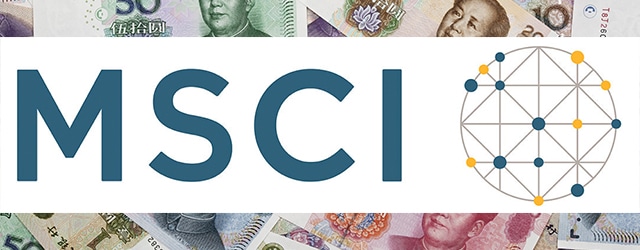China's inclusion into MSCI's global benchmark equityindex next year could havefar-reaching ripple effects.

“MSCI’s inclusion of Chinese stocks into its index is another inexorable step toward China’s entry into—and eventual dominance of—the global financial system,” says Jan Dehn, head of research at Ashmore Investment Management. “Investors will now have to take actual positions, rather than just pontificate.”
The ability to access a dynamic, growing and highly diverse market like China is reward in itself, but there will be additional benefits, Dehn says. The inflows due to index inclusion will begin to balance the asymmetry in financial flows between China and the rest of the world. “Entry into global capital markets is essential to China’s future growth and development,” he says.
Over the long term, the full inclusion of the China market could lead to more than $340 billion of foreign capital flows into the country, according to MSCI. Inclusion won’t begin until May 31, 2018, and will then proceed in stages.
“This is the start of a process through which Chinese equities will achieve a prominence in global investors’ portfolios that reflects the size and significance of China’s domestic stock market and its economy,” Helen Wong, HSBC Holdings’ chief executive of Greater China, said in a statement. She said the move would also provide impetus for the continuing international use of the renminbi as a global investment currency.
MSCI’s decision to include Chinese shares followed three years of rejection. It reduced the number of stocks for initial inclusion from 448, proposed in 2016, to just 222 large-cap stocks this year. Some 169 of the stocks selected can be accessed through the Stock Connect program with Hong Kong, while the remaining 53 Chinese stocks are listed in Hong Kong.



